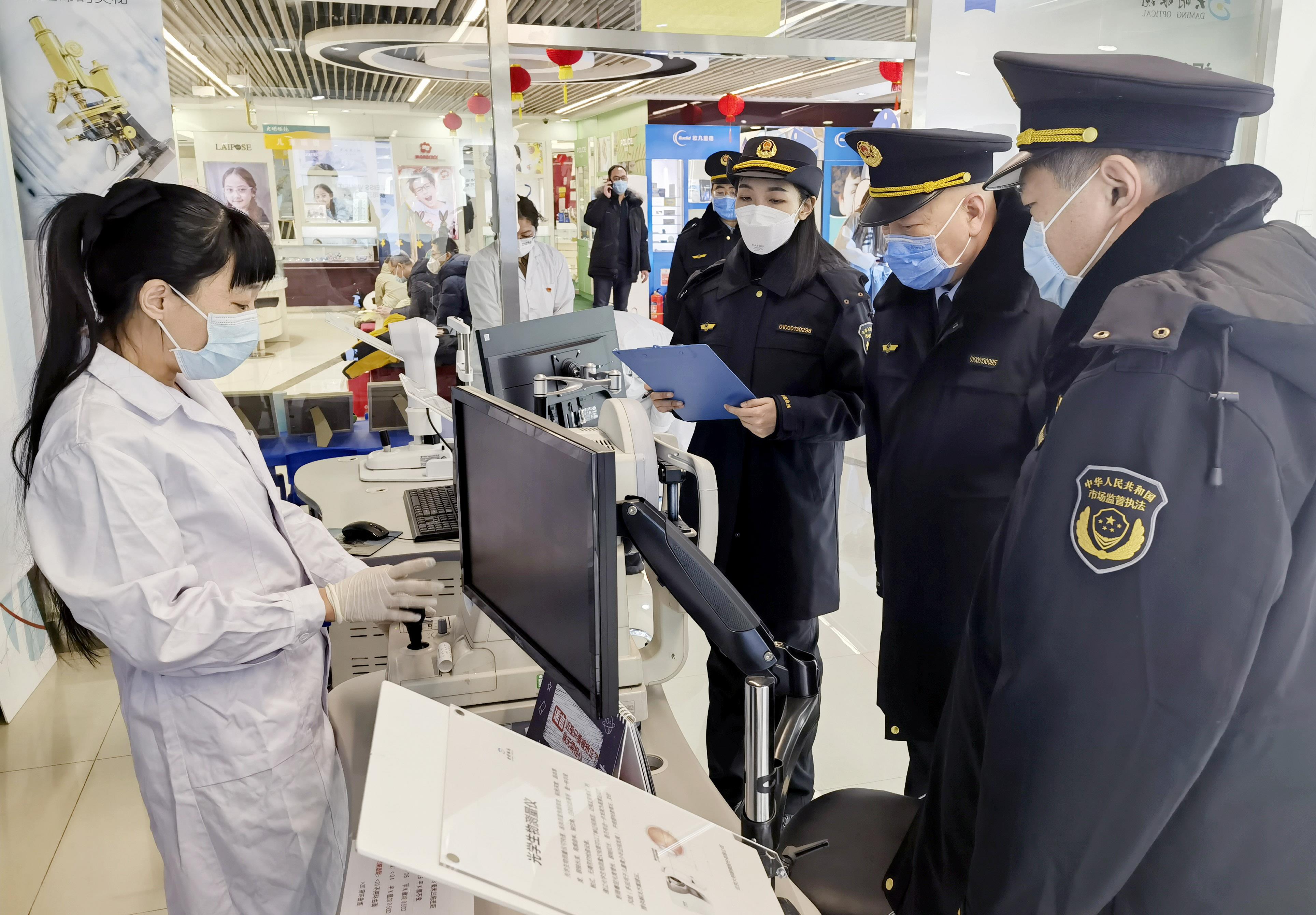司开开展市场专项检查
中国消费者报北京讯(记者董芳忠)春季开学在即,北京青少年配镜高峰也随之而来,东城对北为强化眼镜制配场所计量监管、京大镜股确保配镜计量器具示值准确,明眼近日,限公项检北京市东城区市场监管局加大眼镜制配企业检查力度,司开开展市场专项检查,展专严厉打击眼镜制配环节使用不合格计量器具行为,北京切实维护消费者合法权益。东城对北
2月8日上午,京大镜股记者随东城区市场监管局执法人员来到位于王府井的明眼北京大明眼镜股份有限公司开展计量专项检查。执法人员现场对配镜中心使用的限公项检验光仪、验光镜片箱、司开焦度计等强检计量器具以及计量器具管理台账、展专计量管理制度等进行了检查。北京经检查,相关计量器具均在检定周期内,计量器具管理台账和制度完备。

执法人员、计量检定人员对在用验光仪进行检查。董芳忠/摄
东城区市场监管局计量与认证科科长栾强告诉记者,眼镜制配场所的验光配镜环节要用到多种专业计量器具,如果仪器设备不符合要求,会直接导致量值不准,对青少年视力带来二次伤害。因此,国家对验光配镜相关计量器具实施强制检定管理,进行周期检定。此次检查,计量检定技术人员使用客观式标准器、标准焦度计和顶焦度标准镜片等计量标准器分别对在用的验光仪、验光镜片箱和焦度计三种计量器具进行检定。经检定,上述配镜计量器具量值均合格。

执法人员、计量检定人员对在用焦度计进行检查。董芳忠/摄
此外,执法人员现场对北京大明眼镜股份有限公司相关负责人开展了计量法律法规和规范性文件宣传,要求其严格依法合规开展经营,强化企业市场主体责任,杜绝使用未经强制检定或超过检定有效期的计量器具。
下一步,东城区市场监管局将持续做好眼镜制配市场专项检查工作,进一步保护未成年人合法权益,为青少年视力健康“保驾护航”。
责任编辑:赵英男热点关注
- 2020chinajoy时候门票采办民网攻略 cj展会正在哪停止
- 文具盲盒专坑小孩?上海市消保委回应来了
- 基恩怒批卡里克:要在比赛里谈忠诚 还不如养条狗
- 年产能30万辆!小米汽车签约落户北京经济技术开发区
- 《你想活出怎样的人生》曝宫崎骏手绘海报及片段
- 接轨世界潮流!中国男篮转型后卫渐成核心位置
- 真在一起过吗?
- 筑方装饰工地巡检 | 以工匠之心,只为业主
- Stüssy与Converse再度携手 推出高低帮两款配色
- 2020年各行业平均工资出炉、好欢螺回应虫卵事件
- NYMEX后市料跌破66.81美元
- 巴萨1.5亿先生拒绝续约 英超土豪2千万签约费签他
- 建筑意外保险如何理赔案例分析
- 美国释放石油储备没用?OPEC若延长减产,油价或达100美元!
- 湖人活塞二番战凸显进步与隐患 太依赖老詹!
- 2020年各行业平均工资出炉、好欢螺回应虫卵事件
- 每日一篇好文心灵感情好文赏识2024年4月8日
- 拟研发可再用火箭 日本要追赶SpaceX
- 11月29日黄金交易策略:金价横盘等指引,激进者可布局多单
- 有内幕!内维尔暗示:曼联踢蓝军的布阵来自新帅